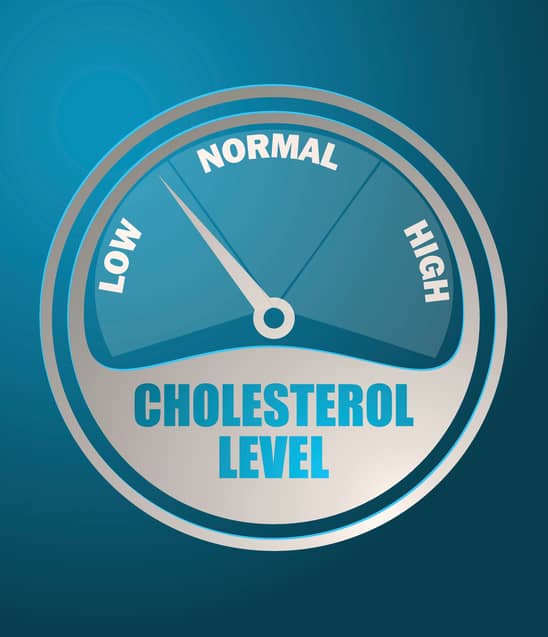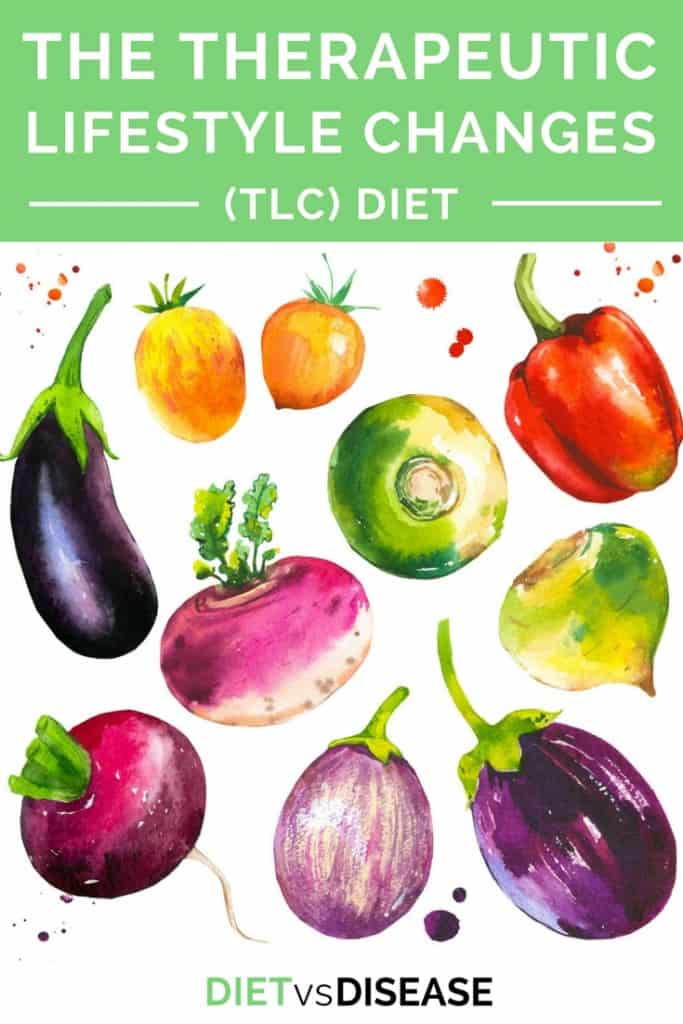
Has your doctor told you to change your eating habits?
One heart-healthy lifestyle plan that they may recommend is the Therapeutic Lifestyle Changes Diet, or TLC diet for short.
It was created by the National Heart, Lung and Blood Institute and endorsed by the American Heart Association.
Health experts ranked it number 5 out of 40 on US News’ Best Diets Overall list, because it’s easy to follow, good for the heart and promotes long-term weight loss.
This article looks at what the TLC diet is, how to do it, and if it’s right for you.

The TLC diet focuses on lowering total dietary cholesterol levels in the blood through diet and exercise choices.
The goal is to raise good cholesterol levels (HDL) and lower bad cholesterol (LDL) and triglycerides by limiting foods high in saturated fat and trans fat.
Some people claim that blood cholesterol levels don’t matter, which is simply untrue.
The TLC diet includes dietary and lifestyle modifications that are broken down into four categories:
1. Eat more: lean meats, low-fat dairy products, plant stanols and sterols and soluble fiber.
2. Eat less: cholesterol, and saturated and trans fats such as fried foods, fatty meats and whole-fat dairy products.
3. Stay physically active.
4. Manage and maintain a healthy body weight or Body Mass Index (BMI).
Summary: The goal of the TLC diet is to raise HDL and lower LDL and triglyceride levels to improve overall heart health. Recommended diet modifications include eating lean meats, low-fat dairy, plant stanols and sterols and soluble fiber, while limiting fatty meats, fried foods and whole-fat dairy products. Maintaining a healthy body weight and exercising for at least 30 minutes a day is also important.

The following list of foods are TLC-approved and best to incorporate into your diet.
Summary: You can enjoy a large selection of foods on the TLC diet, including skinless chicken breast, low-fat dairy, fruits, vegetables, beans, whole grains, nuts and seeds, peanut butter and unsaturated fats like fatty fish and avocados.

Below is a list of foods that are best to avoid when following the TLC diet.
Summary: It’s best to avoid foods high in cholesterol, saturated fats, trans fats, sodium and sugar. This includes fatty meats, fried foods, soft drinks and bakery items.

Stay hydrated by incorporating a variety of drinks recommended for the TLC diet.
Water is most important, with a recommended eight glasses per day. Other great drink options include low-fat milk, orange juice, unsweetened green tea, iced tea and coffee without sugar.
Overall, limit sugary beverages like soft drinks and some juices.
Summary: The TLC diet promotes good hydration with water, low-fat milk, orange juice, unsweetened teas and coffee. Avoid added sugars in soft drinks.

Research on the TLC diet has revealed several positive health outcomes.
Substituting legumes for red meat has been shown to improve LDL, total cholesterol, triglycerides and glucose levels, as well as overall glycemic control in participants with type 2 diabetes (1).
A similar study found reduced inflammatory status (C-reactive protein, TNF) in overweight participants with diabetes when replacing red meat with non-soy legumes three times a week (2).
Another discovered a decrease in undesired gestational weight gain and pregnancy-related complications in participants who followed the TLC diet (3).
Summary: The TLC diet has been shown to improve LDL, total cholesterol, triglyceride and glucose levels. Other possible health benefits include glycemic control, reduced inflammatory status and a decrease in pregnancy-related complications.
Below is a sample 3-day menu plan for someone following an 1,800 calorie diet.

Whether you’re on-the-go or love to eat out, the TLC diet is flexible enough to let you enjoy your favorite restaurants.
Here are some tips for staying on plan while eating out:
Summary: When eating out, choose baked, broiled, steamed or stir-fried foods. Opt for lean meats like chicken and fish and order sauces and butter on the side. Fill up on veggies and salad and eat small portions of red or fatty meats.

Newer research suggests that dietary cholesterol may not actually affect overall cholesterol in the body.
One recent study found that, while processed meats may increase risk of coronary heart disease, dairy foods have little or no effect.
The same study discovered that sugar, in place of saturated fat, led to an increase in total cholesterol and triglycerides and a drop in HDL (the good kind) (4).
Therefore, concentrated and refined sugars may have a more negative effect on blood cholesterol than dietary cholesterol.
Another study concluded that eating saturated fats with omega-3 fatty acids may actually have beneficial effects on blood cholesterol levels (5).
Along with these findings, a meta-analysis of 40 research studies showed that dietary cholesterol was not significantly associated with cardiovascular risk (6).
It seems that dietary cholesterol (cholesterol we eat in foods) is not an issue. Rather, it’s the foods that cause our bodies to produce more cholesterol that becomes a problem (that is, excessive saturated fat and probably refined carbohydrates too).
Summary: Recent research has found that dietary cholesterol may not have the negative effect on blood cholesterol like previously thought. Overall, refined sugars may be more to blame.
The TLC diet is a healthy eating pattern overall.
For this reason it appears to offer great cardiovascular benefits, including reduced risk of heart attack and stroke, and improved glucose control.
However, recent research has found that foods high in cholesterol may not increase our blood cholesterol like previously thought. In fact, concentrated and refined sugars may be more to blame.
So reducing the high cholesterol foods like egg yolks and full fat dairy is likely unnecessary, but eating a diet with minimal junk foods is fundamental.
Overall, the TLC diet can be relatively easy to follow and has shown to help manage total cholesterol, triglyceride and glucose levels in people who are overweight or have diabetes or heart conditions.
 Therapeutic Lifestyle Changes (TLC) Diet (1)" width="683" height="1024" />
Therapeutic Lifestyle Changes (TLC) Diet (1)" width="683" height="1024" />

Most of us feel overwhelmed when it comes to healthy eating, especially if we have a persistent digetsive issue.
At DietvsDisease.org we provide research-backed guides and simple meal plans so that you can enjoy food without the stress, and live your healthiest, happiest life.